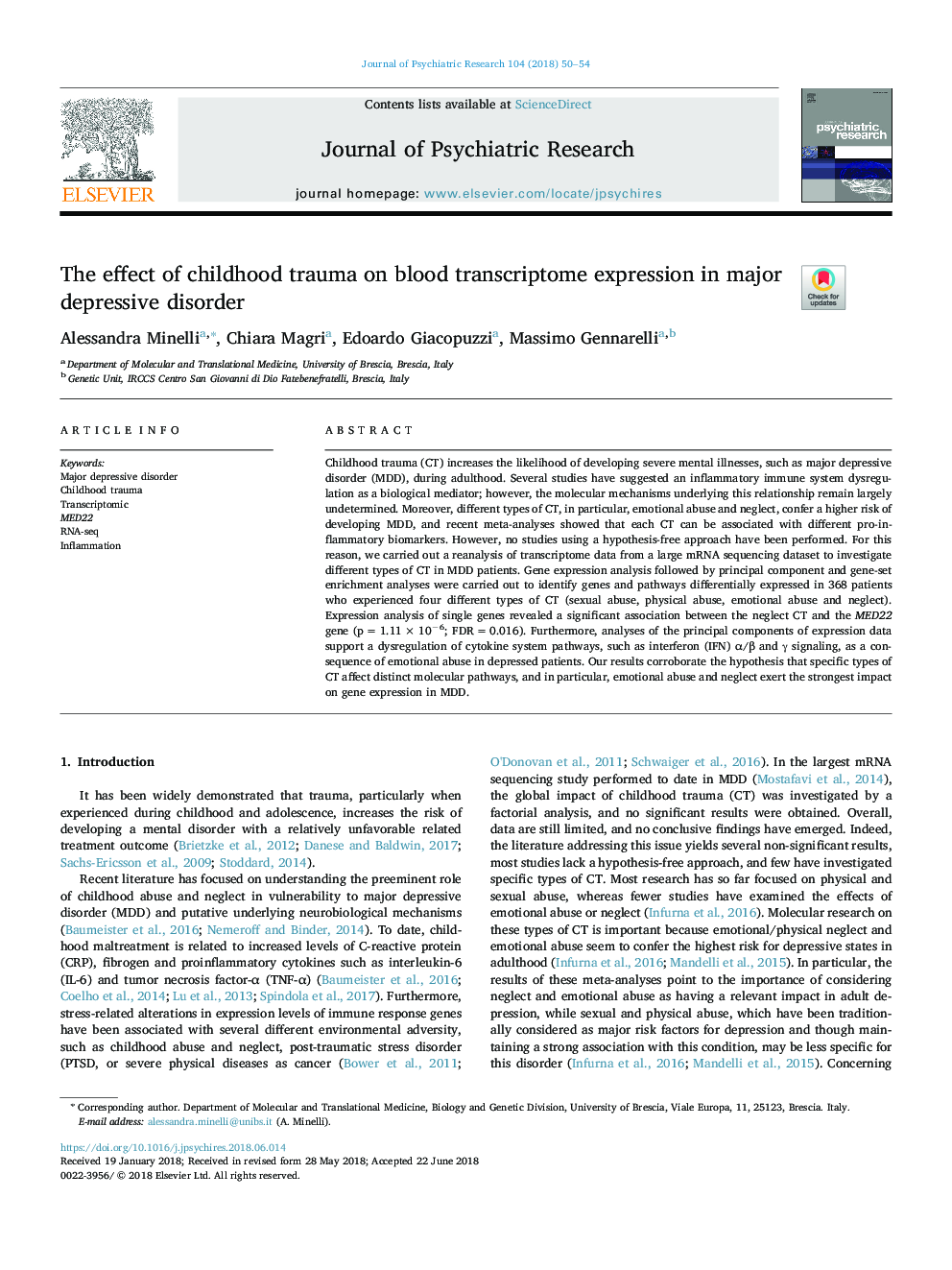| Article ID | Journal | Published Year | Pages | File Type |
|---|---|---|---|---|
| 6799372 | Journal of Psychiatric Research | 2018 | 5 Pages |
Abstract
Childhood trauma (CT) increases the likelihood of developing severe mental illnesses, such as major depressive disorder (MDD), during adulthood. Several studies have suggested an inflammatory immune system dysregulation as a biological mediator; however, the molecular mechanisms underlying this relationship remain largely undetermined. Moreover, different types of CT, in particular, emotional abuse and neglect, confer a higher risk of developing MDD, and recent meta-analyses showed that each CT can be associated with different pro-inflammatory biomarkers. However, no studies using a hypothesis-free approach have been performed. For this reason, we carried out a reanalysis of transcriptome data from a large mRNA sequencing dataset to investigate different types of CT in MDD patients. Gene expression analysis followed by principal component and gene-set enrichment analyses were carried out to identify genes and pathways differentially expressed in 368 patients who experienced four different types of CT (sexual abuse, physical abuse, emotional abuse and neglect). Expression analysis of single genes revealed a significant association between the neglect CT and the MED22 gene (pâ¯=â¯1.11â¯Ãâ¯10â6; FDRâ¯=â¯0.016). Furthermore, analyses of the principal components of expression data support a dysregulation of cytokine system pathways, such as interferon (IFN) α/β and γ signaling, as a consequence of emotional abuse in depressed patients. Our results corroborate the hypothesis that specific types of CT affect distinct molecular pathways, and in particular, emotional abuse and neglect exert the strongest impact on gene expression in MDD.
Related Topics
Life Sciences
Neuroscience
Biological Psychiatry
Authors
Alessandra Minelli, Chiara Magri, Edoardo Giacopuzzi, Massimo Gennarelli,
